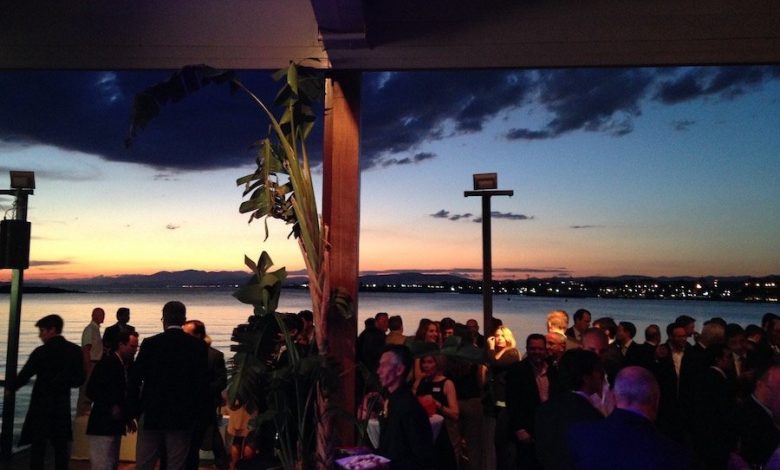Posidonia talking points (part one)

Dagfinn Lunde, gearing up for his tenth Posidonia, providers readers with likely topics for discussion at the world’s most famous shipping show.
June in an even year can mean only one thing in the shipping calendar. It’s Posidonia time once again. The source of most of my invites to parties around Athens speaks volumes about the current shipping markets; they’re mainly from tanker firms.
Tanker owners are doing extremely well. The likes of Euronav and Nordic American Tankers (NAT) are really impressive at the moment with the dividends they’re able to hand out.
I’d say people do not expect Posidonia, this year, to be as amazing as in the past due to the bad shipping markets and difficulties the Greek economic situation faces. It will most likely put some limitations on the celebrations. With regards to the Greek economy one wonders how you go about getting blood out of a dead cow. Something maybe we should ask Brussels how to do.
Still, when you look at which nation’s shipowners have handled the downturn best, I’d say it would have to be the Greeks. They know the markets better than most and tend to come out of downturns strongest. They are good at being contrarian, something we see now by them being the biggest buyers of secondhand dry tonnage during the last two years. They are also in other industries such as real estate, which helps them see the markets in a more rounded way. They are savvy business people.
So where do we stand in the world of ship finance as Posidonia returns? In my mind, there are two categories of owners. The big ones – terms for them have improved a lot so you’re seeing a lot of refinancing going on now, such as with Scorpio. Big names have good access to the banks and the capital markets. A lot of owners are looking at the possibility to reduce their debts.
However, if you are a medium sized or smaller it has become very tough. If you don’t have a long term relationship with a bank it is especially tough.
In Greece, the local banks have pulled back from helping smaller owners while Credit Suisse has trumped RBS as the lead provider of ship finance to the Mediterranean nation. Credit Suisse are not a typical shipping lender, yet they are doing fantastically well. Moreover, they do earn on both sides of their balance sheet as they will always require deposits at least as big as the loans.
I’m sure one of the talking points in Athens this June will be a debate on the future of the family shipping business model. Many people question its future. I say it has a strong future, you just have to be efficient, that is all. It’s also worth pointing out that most of these family run firms are in the dry bulk market, which are at record lows, but this is a cyclical business and those that can tough it out will bounce back.
Stay tuned for Friday’s second installment of Posidonia talking points, where Splash canvasses a diverse and famous audience in shipping.
This article first appeared in Maritime CEO magazine, which will be distributed at Posidonia all next week. Readers can access the full magazine for free online by clicking here.
